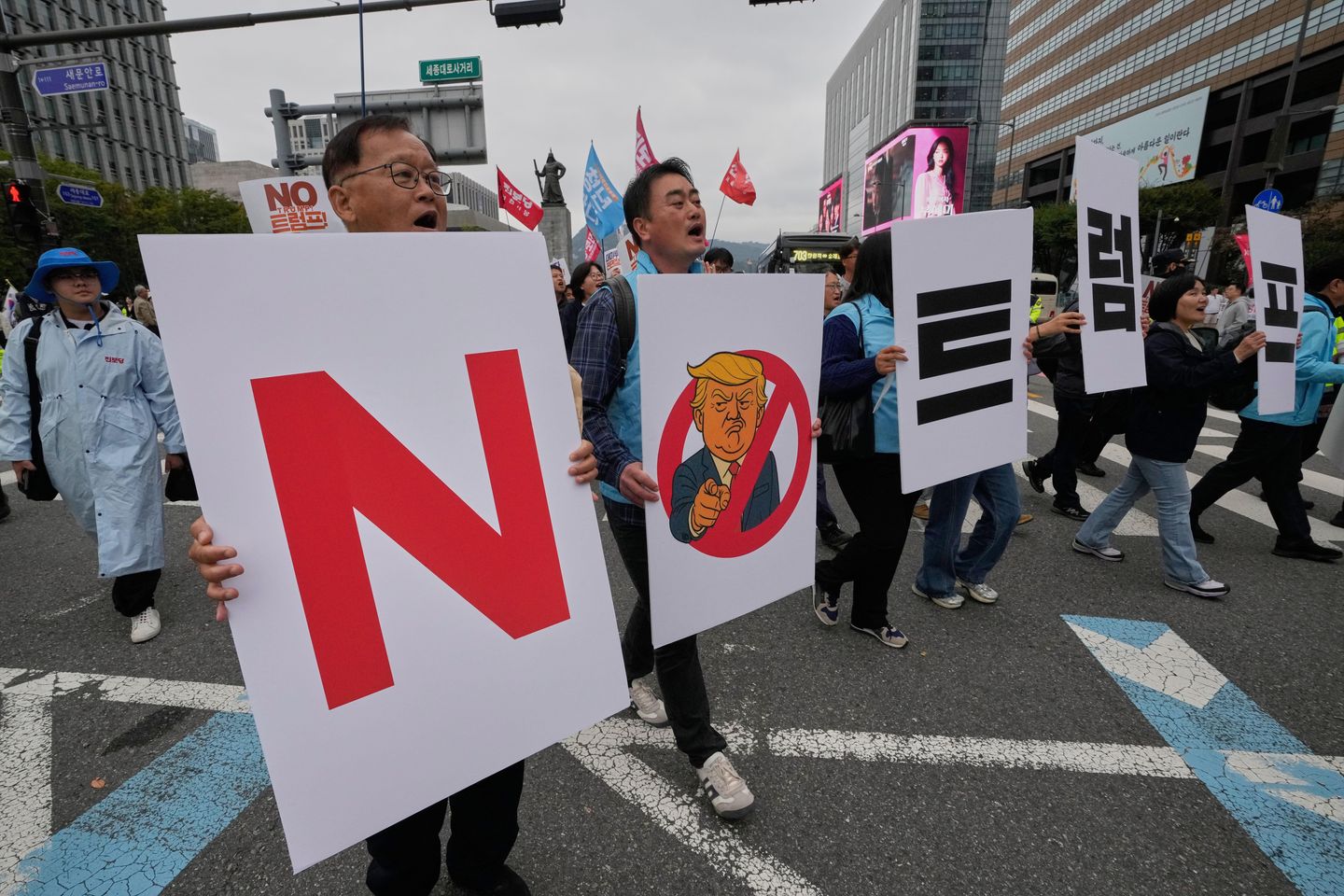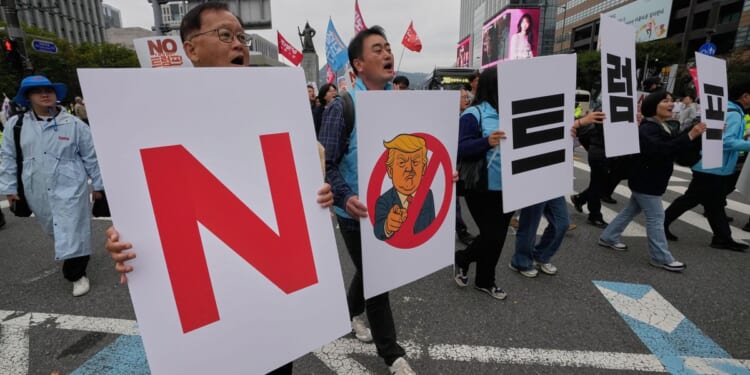
The Senate voted Thursday in a largely symbolic move to terminate the emergency powers that President Trump used to impose tariffs on dozens of trading partners across the globe.
Four Republicans joined every Democrat in the 51-47 vote, which capped a remarkable — though non-binding — congressional rebuke of Mr. Trump’s unilateral use of duties on foreign goods.
Earlier this week, the Senate voted to nullify the powers Mr. Trump used to impose a 50% tariff on Brazilian goods and 35% on Canadian products.
The House is not expected to take up the disapproval resolutions, making it a messaging exercise that puts senators on record in support or opposition to Mr. Trump’s trade moves.
Mr. Trump says tariffs, or duties on foreign goods brought into U.S. markets, are a good way to create revenue, gain leverage over other countries and protect U.S. industries and workers.
He imposed a 10% tariff on all imports this year and higher tariffs on goods from countries around the globe, saying the U.S. needed to close deficits with places that sell plenty of products to the American market but purchase far fewer goods from U.S. producers.
Democrats and Republicans like Sen. Rand Paul, a libertarian from Kentucky, say the levies increase costs along the supply chain, create havoc in global relations and hurt U.S. consumers and businesses.
For instance, many Canadians are refusing to buy American whiskey because of trade tensions.
Beyond Mr. Paul, Republican Sens. Mitch McConnell of Kentucky, Lisa Murkowski of Alaska and Susan Collins of Maine supported the anti-tariff resolutions.
Late Tuesday, the Senate voted, 52-48, to terminate Mr. Trump’s authority to impose high tariffs on goods from Brazil, a major coffee producer.
Senators voted, 50-46, on Wednesday to nullify Mr. Trump’s tariffs on Canada.
Whether Mr. Trump has the power to impose tariffs unilaterally, without Congress, has been a running subplot of his second term. It is the subject of a major case before the Supreme Court that could determine whether Mr. Trump acted lawfully by invoking the International Emergency Economic Powers Act.
The administration says Mr. Trump is working within the parameters of the 1977 law.
Republican leaders in the House and Senate have been happy to let Mr. Trump work his will on trade, hoping he can secure favorable agreements with other nations.
Other countries impose tariffs and trade barriers on U.S. products.








